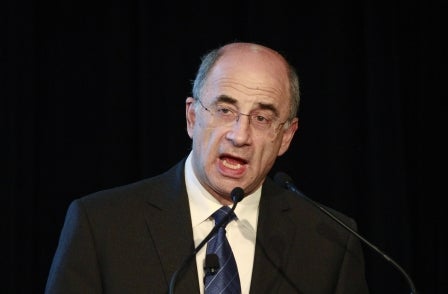
It sometimes seems that here are lies, damn lies and surveys about press regulation.
Ever since the publication of the Leveson report in November 2012, publishers have been engaged in a PR battle with pressure groups Hacked Off and the Media Standards Trust – commissioning rival surveys which generally come to contradictory conclusions.
In November 2012 a YouGov poll commissioned by the MST found 79 per cent in favour of “favour an independent press regulator, established by law”.
But a Survation survey commissioned the same month by the publisher-backed Free Speech Network found that only 24 per cent felt “new laws and regulations” were needed to control the media.
Interestingly, only 0.5 per cent of respondents in that survey said press regulation was their number one concern (over issues like unemployment and the NHS) and only 12 per cent put it in their top ten most important issues.
In May this year a YouGov poll commissioned by the MST found that 56 per cent of Britons did not have confidence in the publishers’ Royal Charter.
But also in May, a Survation poll commissioned by the Free Speech Network found that 76 per cent believed there should be a public consultation on the proposed Royal Charter to regulate the press proposed by the three main political parties.
Some 66.5 per cent felt the new system of regulation should not be set up in such a way that gives the politicians final say.
And so it goes on (as an aside, it is perhaps worth noting that there was a public consultation by the Privy Council over the cross-party Royal Charter but there has been no consultation, other than among publishers themselves, over the Independent Press Standards Organisation regulation which they are in the process of setting up).
Finally, on 16 October a Sun opinion poll carried out by YouGov found that 76 per cent off respondents said there was “a risk a future government would use a legal system of press regulation to try and stop newspapers from citicising them?”. This was interpreted as an emphatic rejection of the cross-party Royal Charter plan.
But days earlier, an MST survey suggested public support for the Parliament-backed press regulation plan. It found that 73 per cent of respondents would not have confidence in “in a system of press regulation established by the major newspaper publishers, if that system was not reviewed independently”.
My conclusion from all these polls is that the public have very little faith in either politicians or the press at the moment and that byzantine debates over the future of press regulation are probably not top of most peoples' list of priorities.
It is more than a week since the Coalition Government published its final plan for a Royal Charter on press regulation and the big publishers have yet to respond.
But leader columns are beginning to show deep unease about the principle that politicians should have the final say on how their own watchdogs (the press) are regulated.
Whether publishers and owners decide to amend their IPSO press regulation scheme to fall in with cross-party Royal Charter may depend on how much they fear the “stick” of exemplary damages in legal actions for non-members of an officially-approved regulator will cost them.
One thing is certain though. With the first of the many hacking and bribery trials due to start next week, the British journalism industry has to act fast to set up a new regulator which at least has the confidence of the British public even if it does not tick every box on Royal Charter checklist.
UPDATE: Hacked Off tell me there have been 21 polls published featuring press regulation since May 2012. They have carried links to them all here.
Email pged@pressgazette.co.uk to point out mistakes, provide story tips or send in a letter for publication on our "Letters Page" blog
